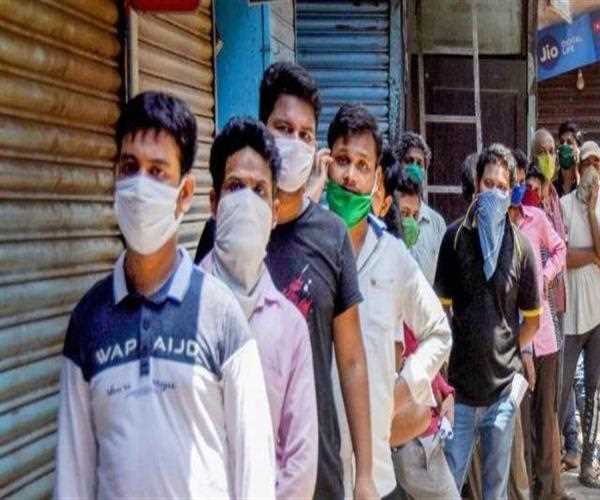
13-May-2020
Take Care Of Self And Others
The deadly virus that has spread the epidemic has also knocked on the campuses of our major medical institutions and has also infected a large number of frontline health workers such as doctors, nurses, and semi-medical personnel. Due to this, Corona positive cases increased to 73 on 29 April in City Beautiful Chandigarh.
It drew attention to the risk of infection spreading in hospitals, which could be fatal to the lives of patients, their caregivers as well as frontline health workers. The administration's decision to close all hospitals for non-COVID patients has flaws.
In fact, dedicated hospitals for COVID could be established on an emergency basis. For this, places like the cricket stadium could also be converted into a hospital with the help of the army. The issue of patient safety has been receiving the attention of the world community from time to time in view of hospitals as a perennial source of infection.
However, the issue of coming in contact with health workers of the deadly virus through patients has come to light only after Corona took thousands of precious lives. It has now been officially confirmed that hospitalized patients may be at risk of HAI (hospital infection).
Corona has changed all the paradigms that health workers are also at risk. Elderly and people with weak immune systems are more likely to get infected. Some of the risk factors are prolonged hospital stay, catheter or windpipe use, health workers not washing their hands properly and misuse of antibiotics etc.
According to an estimate in the US, 1.7 million people suffer from hospital infection every year, of which 99,000 die. In India, where there is a lack of accountability and awareness, this number can be very large.
READ HERE MORE : Jewish-Arab Relations On The Rise During Corona Pandemic
How to reduce HAI or hospital infections in hospitals worldwide? These steps can be taken for this:
Health workers wash hands with regular soap and water.
Use a catheter, relay tube only when extremely necessary.
Thoroughly clean the skin in place of the surgical site.
Health workers wear hair-covering covers, masks, gowns, boots, and gloves. Control the source of infection spreading from the patient and visitors.
Reports of doctors and other health workers getting infected with the coronavirus are coming from all over the country. According to preliminary estimates, five hundred health workers were infected by April 26, this figure needs to be updated. By April 14, nine thousand health workers were infected in the US.
As per the data, most of the infected health workers in cities like Chandigarh, Delhi, Hyderabad, Chennai, Mumbai and Srinagar etc. were associated with non-Covid-19 operations and were not provided with good quality N-95 masks and Personal Protective Equipment (PPE) . In Chandigarh, 75 per cent of the affected emergency areas were treating non-Covid-19 patients and often complained of lack of PPE and lack of training to work in ICU.
According to an article by Lancet, health workers stationed in hospitals treating Covid-19 have the pain of exhausting, the pain of hard decisions to select patients by preference, and the risk of losing patients and colleagues in addition to the risk of infection.
It is important that governments and societies at large scale should not only avoid deploying health workers like pawns without adequate training and protection, but treat them humanely and ensure their safety.
The Indian Council of Medical Research has directed to provide N-95 masks and high quality PPE kits for each health worker working in the Emergency Department. Similarly, there is a need to provide such facilities to health workers working in OPD.

Content Writer/Journalist
I am a content writter !
Join Our Newsletter
Subscribe to our newsletter to receive emails about new views posts, releases and updates.
Copyright 2010 - 2026 MindStick Software Pvt. Ltd. All Rights Reserved Privacy Policy | Terms & Conditions | Cookie Policy